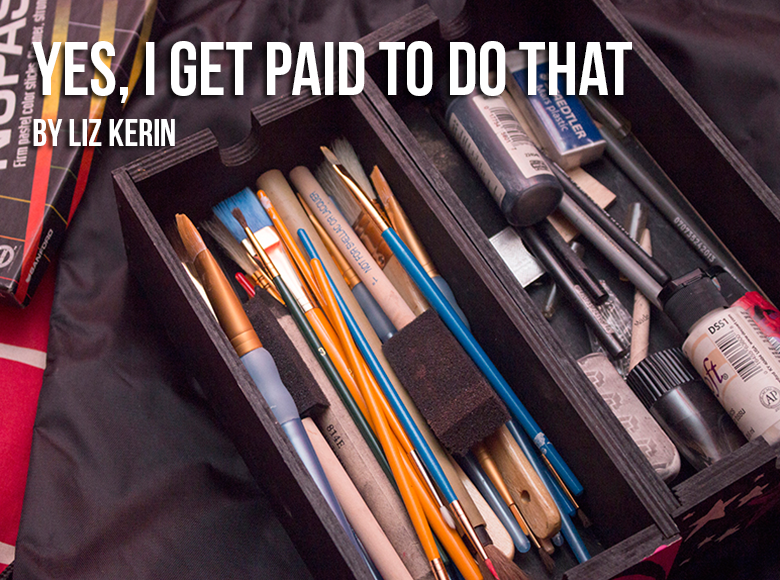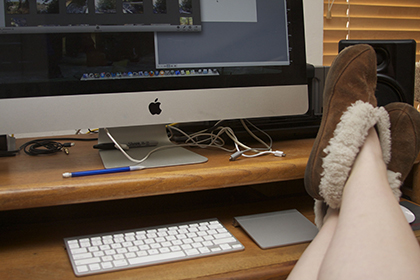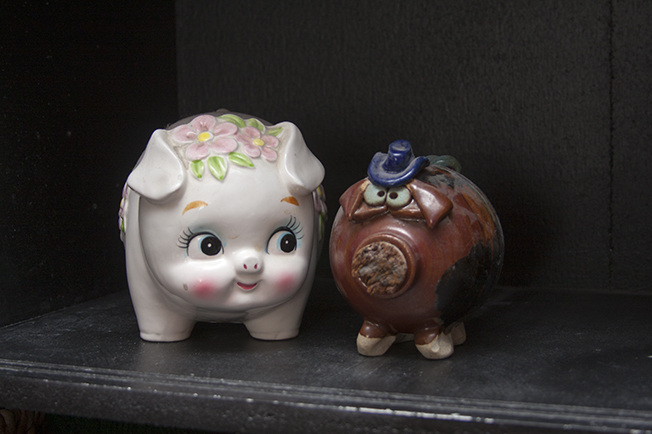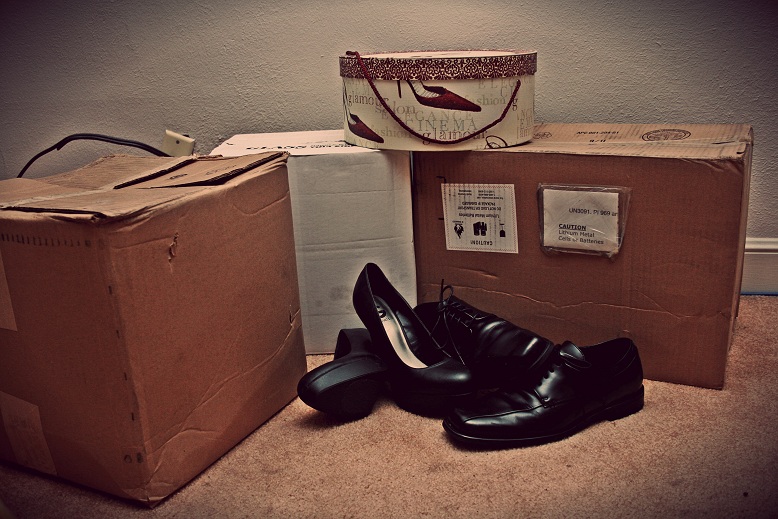Someone (or many someones) once (or many times) told me that the hardest thing in the world is to turn your passion into a living—probably in an attempt convince me to attend law school instead of doing whatever it was I called daily life in my early 20s. But doing hard things is kind of my thing, so this sage wisdom only served to reinforce the borderline-masochistic work ethic I already had.
Writing was the only way I’d ever wanted to spend my life and, lucky for me, it also happened to be the only thing I was pretty decent at. When I graduated high school and went to college, the only logical choice for me was to enroll in a creative writing program. And when I graduated college and started forging my path into the belly of the beast known as The Real World, the only logical choice for me was to keep doing what I knew I was good at. To keep doing what I knew I cared about the most. I saw no reason to divert from the plan—the plan to write professionally, to pay my rent with words. I knew it would take some time and a boatload of dedication and that I’d probably have a succession of mind-numbing day jobs to pay the bills until then, but like a great many someones said: Turning your passion into a living is hard work.
By no means am I any kind of expert on this topic. I don’t think anyone is, because everyone’s journey towards gainful, fulfilling self-employment is 100% different. But I can say that I’ve learned a few really vital things about this whole process that probably do apply across the career spectrum, whether you’re busting your ass trying to get a tech startup off the ground or rousing your neighbors at 7 am with your vocal warm-ups in hopes of one day joining the Metropolitan Opera.
Make Time
First of all, there’s this: If you really care about it, you’ll make time for it. It’s so easy to say, “Ohhh, but I am le tired. I think I’ll have a beer and watch Top Chef instead.” It’s especially easy to say this if you’re working full-time in an arena that doesn’t relate to your ultimate goal. Trust me. I’ve been there. A beer and Top Chef sounds like the best thing most nights. And yes, you should treat yourself with a mental break now and then! But as soon as those credits roll, it might be time to turn off the TV and re-focus on your double life. If you care about your startup, your novel, or being prepped for your audition tomorrow—you will put in the hours.
By now, most people have heard of Malcolm Gladwell’s 10,000 hours thing. If it takes 10,000 hours of hard work and epic failings to turn a novice into an expert and you spent three hours watching House Hunters after work, you cheated your own damn self out of that valuable time. Three hours might not seem like a lot day-to-day, but it adds up over weeks, months, and years (you do the math—just be prepared for the subsequent existential freakout). But if you’re that guy or gal who makes a point to clock a fraction of your 10,000 hours every day, you’re not doing it because someone is making you do it: you’re doing it because there’s a little voice in the back of your head that keeps feeding you inspiration: ideas that you’ll continue to be excited by. You make time, because it’s easy to make time when you truly, deeply, give a shit about something.
Expand Your Definitions
Something else I figured out in my journey towards paying my rent with words is how important it is to challenge yourself and expand your range. This was a major revelation for me and is probably the #1 reason I can use words to keep a roof over my head.
I studied creative writing in college, with a focus on screenwriting and playwriting. I still do both of those things, and I still love both of those things with the same fervor as an 18-year-old college freshman. But it was only when I started blogging, editing, and writing creative prose as opposed to dialogue-driven drama that an actual need for my services began to crop up. People asked me to write blog posts and articles. They asked me to write jokes for their company’s Twitter feed to attract a certain type of audience. I was approached to contribute a short story to an anthology.
I realized that I didn’t need to sit behind a desk or wait tables or sling lattes all day while I cultivated my writing career. I could have a writing career right now, even if it wasn’t quite the type of writing I originally imagined myself doing. But I’m so psyched that I ventured away from my comfort zone and took on different types of projects. I can parlay the experiences I’ve had ghostwriting for other people and researching unfamiliar topics into my personal projects. It helps keep my ideas fresh and I’m constantly learning new things—not to mention I was able to pay my hefty electricity bill last month (woop woop).
There are so many other ways that people can use their talents and passions aside from the way they might have always imagined. That’s not to say you can’t and won’t ever use them the way you want most! It’s just a nice way to bridge the gap while you work towards your ultimate goal. It’s also a major confidence booster: nowadays, when people ask me what I do, I get to tell them what I do. I don’t get insecure anymore because I have to explain the origins of my totally mundane double life or fudge an answer that godawful question, “Do people ever pay you for that?” If I hadn’t forced myself to expand my range, there’s a good chance I’d still be awkwardly avoiding eye contact at family reunions whenever the subject of my “career” came up.
Move Forward
The final lesson I’ve learned since I joined this whole circus is an ongoing one: as long as I keep moving forward, I’ll always be improving. My most recent work is almost always my best work, which serves as near constant incentive to continue plugging ahead. I always tell people that the best idea I’ve ever had is something I haven’t even thought of yet. If I put a stopper in my pursuits, if I focus on something else, something easier… I might never have the best idea I’ve ever had. And that’s the thing that scares me more than anything else, even more than having what some people might call an “unstable” career path.
If you’re the type of person who can’t fall asleep at night unless you can assure yourself every day that you did something to further your own cause, then guess what: somehow or another, you’re going to make this thing work. You care about it too much. You know that there’s a difference between a job and a career. You might occasionally wonder what will cause you to stop trying—if there will come a day where the uphill battle finally makes you its bitch. But I personally wonder about that potential doomsday less and less as time goes by: I’m not sure if that means I’ve finally accepted the delusional veil I’ve been pulling over my eyes since I was 18, or if it’s a sign of actual progress. Either way, I feel good about where I’m at, even if most days are fraught with daunting rewrites and difficult clients and insecure inner monologues every time I hit “Send.” I’m doing my thing and I get to do it everyday. I’ve worked hard for my right to do my thing. If you have a thing, and if you truly care about it, you will make time to do it. And that’s how you do it for life, whether you’re a pro or a soon-to-be pro.

Photo by Meaghan Morrison







